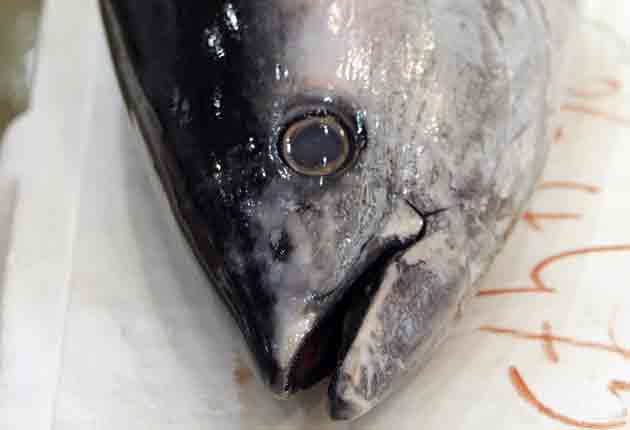Campaigners claim victory over tuna firm change

Your support helps us to tell the story
From reproductive rights to climate change to Big Tech, The Independent is on the ground when the story is developing. Whether it's investigating the financials of Elon Musk's pro-Trump PAC or producing our latest documentary, 'The A Word', which shines a light on the American women fighting for reproductive rights, we know how important it is to parse out the facts from the messaging.
At such a critical moment in US history, we need reporters on the ground. Your donation allows us to keep sending journalists to speak to both sides of the story.
The Independent is trusted by Americans across the entire political spectrum. And unlike many other quality news outlets, we choose not to lock Americans out of our reporting and analysis with paywalls. We believe quality journalism should be available to everyone, paid for by those who can afford it.
Your support makes all the difference.Britain's biggest tinned tuna brand has bowed to pressure from campaigners and agreed to end a destructive form of fishing.
Princes, responsible for more than 40 per cent of tuna tins sold in the UK, has asked suppliers to phase out the use of man-made rafts called Fish Aggregating Devices (FADs).
Sharks and other species that congregate around FADs are scooped up along with tuna in vast stringbag-like 'purse seine' nets.
Princes, which does not have any fishing boats, said it "aimed" to buy only tuna from FAD-free purse seining and the less damaging pole-and-line method by the end of 2014.
The company announced the U-turn yesterday after a two-month campaign from Greenpeace that saw activists dress up as sharks and play the Jaws theme tune outside the Princes headquarters in Liverpool.
Greenpeace launched the campaign in January, ranking Princes bottom of a league table of tuna sustainability. Days later a Channel 4 series derided the company's claims - made on its tins - that it was "fully committed to fishing methods which protect the marine environment and marine life."
Tesco promised to move from purse seining to pole and line by the end of next year days before transmission of Hugh's Fish Fight, presented by the chef Hugh Fearnley-Whittingstall.
Last week the EC Fisheries Commissioner Maria Damanaki announced plans to end another policy criticised by Fearnley-Whittingstall, 'discards' - the throwing back of dead fish by trawlers that have met their quota.
Princes, owned by Japan's Mitsuibishi, said that creating new market demand for FAD-free tuna would help lower 'by-catch', the unwanted animals unintentionally caught in nets.
Mike Easterbrook, deputy managing director, said: "By setting out a four-year plan and sharing our progress with others in the industry, we hope to encourage other major tuna purchasers to follow our lead."
Greenpeace said John West and Morrisons were now the least sustainable for tinned tuna.
David Ritter, Greenpeace head of oceans campaign, said: "Just a couple of months ago, only a minority of tinned tuna retailers had stopped using FADs, but in just a short of amount of time there's been a huge shift across the bulk of this industry.
"The majority of the UK market have now distanced themselves from the destructive methods still being used to catch John West and Morrisons tinned tuna."
Mr Fearnley-Whittingstall hailed Princes's decision as "a great result."
"We have worked closely with Greenpeace on the whole tuna sustainabilty issue, he said.
"Princes were left in a tight spot after they failed to respond to our challenge. We have kept the pressure up and they have made a good commitment. It now puts the pressure on remaining brands such as John West and Morrisons to follow suit."
Join our commenting forum
Join thought-provoking conversations, follow other Independent readers and see their replies
Comments